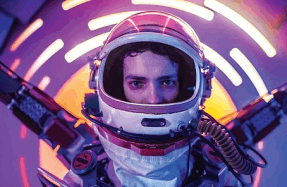COMMUNAL COMPLICITY Family and Fairness in Hirokazu Koreeda’s Shoplifters and The Third Murder



When Hirokazu Koreeda won the Palme d’Or – the Cannes Film Festival’s highest prize – in 2018, it was seen as something of a surprise. Not simply due to the fact that Shoplifters, which premiered there, was a modest, humanist picture, but also because it was Koreeda’s thirteenth narrative feature, and a familiar one at that. The director had been in competition at Cannes on four prior occasions – with Distance (2001), Nobody Knows (2004), Like Father, Like Son (2013) and Our Little Sister (2015) – and, of those, only Like Father, Like Son had earned an award, the Jury Prize (though Yūya Yagira, at the time just fourteen, won Best Actor for Nobody Knows). There seemed no reason to suspect Koreeda’s latest trip to Cannes would find a change of fortunes, especially given Shoplifters didn’t embody some bold new direction or unexpected provocation. Instead, it’s the product of a workmanlike filmmaker going about his business, another success for a reliable peddler of auteur-adjacent crowd-pleasers in which simple narratives give way to greater thematic complexities.




Koreeda, born in Tokyo in 1962, is best known – and has most widely practised – as a creator of family dramas. He cut his teeth making documentaries, and his directorial approach for his fiction features is in keeping with this training, working with the mores of social realism and a devotion to vérité (‘In portraying characters, I always try to consider: “What would this person truthfully do in such a situation?”’ Koreeda says. ‘Without any experience in producing documentaries, my work would probably be much more fictional’ ). But the dramatic narratives themselves, and the sometimes heavy-handed use of score, tip his pictures towards populist sentimentalism. Nobody Knows, the family drama of his to which Shoplifters is closest kin, is a based-on-a-true-story portrait of a set of siblings abandoned by recounts the gathering of a family for an annual memorial service on a lost son’s ‘death anniversary’. I Wish (2011) is about a pair of brothers (played by real-life siblings Kōki and Ohshirō Maeda) who’ve been separated in a custody settlement, living, one with each parent, in different cities. Like Father, Like Son explores the eternal nature/nurture debate through that old-as-time dramatic device: two boys – one raised rich, the other raised poor – are discovered to have been switched at birth. Our Little Sister deploys another oft-used dramatic spur – the death of an estranged relative – with three twentysomething siblings meeting their fourteen-year-old half-sister for the first time at the funeral of their birth father. And After the Storm (2016) is a film about a deadbeat dad – a drunken gambler who fails to meet child-support payments – and his relationships with his son, ex-wife, sister and elderly mother.
You’re reading a preview, subscribe to read more.
Start your free 30 days



